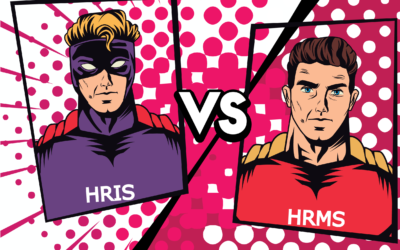Effective Candidate Resume Management: Tips for Recruiters

The phrase “We’ll keep your resume on file” is a familiar refrain in the recruitment process, often serving as a polite way of conveying that a candidate hasn’t secured the job. However, rather than being a mere rejection, recruiters can leverage this situation to streamline their processes and make smarter hiring decisions. Here are some tips for recruiters on managing great resumes effectively and when to keep them at the forefront.
Rejecting Candidates: Best Practices
When rejecting candidates, it’s crucial to employ effective communication strategies. Instead of using a generic “We’ll keep you on file,” consider these alternatives:
Never Ghost a Candidate
Sending rejection emails instead of leaving candidates in the dark is not just a matter of courtesy but a strategic move. By providing clear communication, you soften the blow of rejection and, importantly, help candidates understand why they weren’t selected. This constructive feedback can contribute to their professional growth and better prepare them for future opportunities within your organization.
Keep Promising Relationships Warm
When expressing the intention to keep a candidate’s information for future opportunities, clarity is key. By explicitly stating that you see potential in them and intend to reach out in the future, you not only maintain a positive connection but also keep the candidate engaged. This increases the likelihood of them responding positively when contacted for new job openings.
Times to Keep Resumes on File
Knowing when to retain resumes can save time and resources in future hiring processes. Here are four instances where keeping resumes on file is particularly beneficial:
- You liked this candidate but chose someone else
Flagging a resume of a candidate you liked but ultimately didn’t choose is more than just a formality. It’s a strategic move that streamlines future recruitment efforts. When a similar position becomes available, having a pool of pre-vetted candidates simplifies and expedites the hiring process.
- The candidate was impressive but not the right fit
Recognizing a candidate’s potential, even if not an ideal fit for the current role, positions you for future success. By keeping their resume on file, you acknowledge their strengths and open the door for consideration when a more fitting opportunity arises.
- Maintaining a Plan B
Having an alternative candidate pool on standby serves as a contingency plan. If the candidate you hired doesn’t work out, you can turn to these pre-evaluated resumes, avoiding the need to start the hiring process from scratch. This strategic planning minimizes downtime and ensures a smoother transition.
- Candidate rejected an offer
When a candidate rejects an offer due to specific expectations or circumstances, retaining their resume becomes a valuable resource. People’s priorities and situations change, and the candidate may become open to reconsidering your company in the future. Keeping their information on file ensures you can revisit them when their circumstances align better with your offerings.
Managing Files Effectively as You Grow
To efficiently manage candidate and employee files, it’s essential to transition from traditional methods to a cloud-based Applicant Tracking System (ATS). This ensures organized records and minimizes security risks associated with paper files or scattered digital documents.
In conclusion, effective resume management involves transparent rejection practices and strategic retention of promising resumes. By adopting these practices, recruiters can enhance their efficiency, maintain compliance, and build a talent pool for future successes. Transitioning to a robust recordkeeping system further ensures recruiters can tap into their pool of potential candidates seamlessly. Embrace modern tools like VinetoHR to unlock the full potential hidden in your treasure trove of resumes.

Da li ste spremni da aktivirate puni potencijal vaše kompanije?
Контактирајте нас to learn more about what vinetoHR can do for you today.







